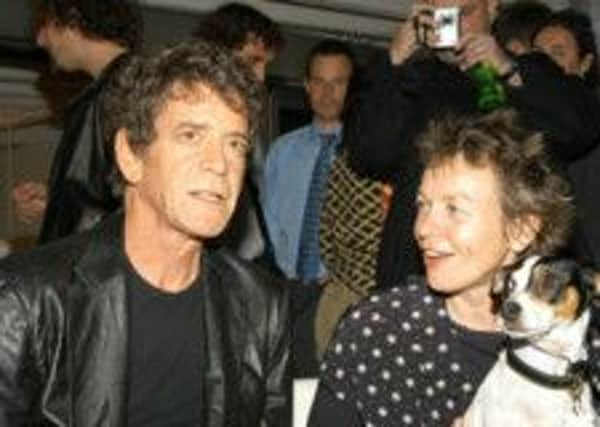Comment: Lou Reed thought journalists were idiots


Potential members include Simon Hattenstone of the Guardian, who ended up crying in his hotel room after a bruising encounter whose lowest point was Hattenstone exclaiming “Why are you being so horrible?” There’s Marc Riley, whose “nightmare” of a radio interview ground to a halt after seven minutes. Or there’s Peter Ross, a long-time contributor to Scotland on Sunday, to whom Reed responded to a question about posterity with withering sarcasm: “Why would I care about that? Do you think someone’s going to remember you, Peter? The great interviewer?”
I never had the pleasure myself, but rereading dozens of archive features this past week, the same pattern repeats constantly. First, Reed belittles the journalist by ignoring them for as long as possible, and then, when the interview begins, barely acknowledges them (Peter Ross got a brief handshake but no smile or hello – and fared better than most).
Advertisement
Hide AdOnce the interview begins, you face monosyllabic, evasive or brutally pedantic answers and blunt dismissal of any subject Reed considers personal (drugs, sexuality, politics, his past generally, or even just his lyrics). If you stick to the only safe subject, music, he is likely to tell you your questions are stupid and you should have done more research. Reed was open about his reasons for this – he thought journalists were mostly deceitful, ignorant idiots.
What’s peculiar about this is that, right until the end of his life, Reed continued to talk to us idiots. Lots of musicians stop when they realise they don’t have to: George Michael; Stuart Murdoch of Belle and Sebastian (in the band’s early days); Godspeed You! Black Emperor.
So why didn’t Reed just say no? On some level, it’s clear, he enjoyed the sparring. Rereading Peter Ross’s 2005 encounter (and you should; it’s something of a classic of Scottish music journalism) it’s striking that Reed, after a typically hostile half hour, agrees to a follow-up telephone interview. He then berates Peter for requesting more time: “You should have been happy and quit while you were ahead.”
I could, at this point, ask what kind of weird passive aggressive sociopath would behave like this, and attempt some sort of psychoanalysis. But I can see Reed sneering dismissively from beyond the grave even as I write that, so let’s not. Anyway it’s more productive to examine his behaviour in terms of his art. Watch footage of him meeting the Australian media in 1974 (it’s on YouTube and is riveting). Reed pointedly answers every question with short, robotic dismissals. He is clearly performing. And it’s a brilliant performance, as damning a critique of the media circus as any Chris Morris sketch. Most stars patiently indulge the sort of banal, casually intrusive questions that are commonplace at press conferences. Reed just bats them away, blithely contradicting himself (Yes he takes drugs. No he doesn’t. He’s only meeting the press because he was told to. He “loves” journalists. Etc). And, frankly, when faced with questions like “Are you a transvestite or a homosexual?”, why not?
Watching him refine this approach over the years, I can’t help but admire his commitment. For all his loathing of critics, Reed was a brilliant, forensic critic of the interview process, relentlessly analytical. It’s a mistake to dismiss this as mere rudeness, as rude as he plainly was. It was more that he applied the same attention to detail to skewering interviewers as he did to making his records. The Simon Hattenstone interview fell apart, partly, because Hattenstone’s questions weren’t very good, being woolly, banal (“Which of your songs do you like best?”) or persistently personal – despite Reed stating that he wouldn’t answer personal questions.
There’s an argument, in fact, that if every musician picked apart interview questions as painstakingly as Reed, the whole unspoken contract on which music journalism is based – interviewee bares soul, interviewer expresses wise, witty insights – would be exposed as the mutually exploitative sham it so often is.
Advertisement
Hide AdPerhaps this is what Reed wanted – to challenge media conventions as much as he challenged musical ones. A 2005 exchange with Sylvie Simmons of Mojo springs to mind. Simmons points out that Bob Dylan, once as evasive as Reed, has begun talking more openly about his work, “as if he wants people to understand”. The clear hint is that Lou should lighten up. He bats it right back. “What’s to understand? Who actually cares?”
READ MORE